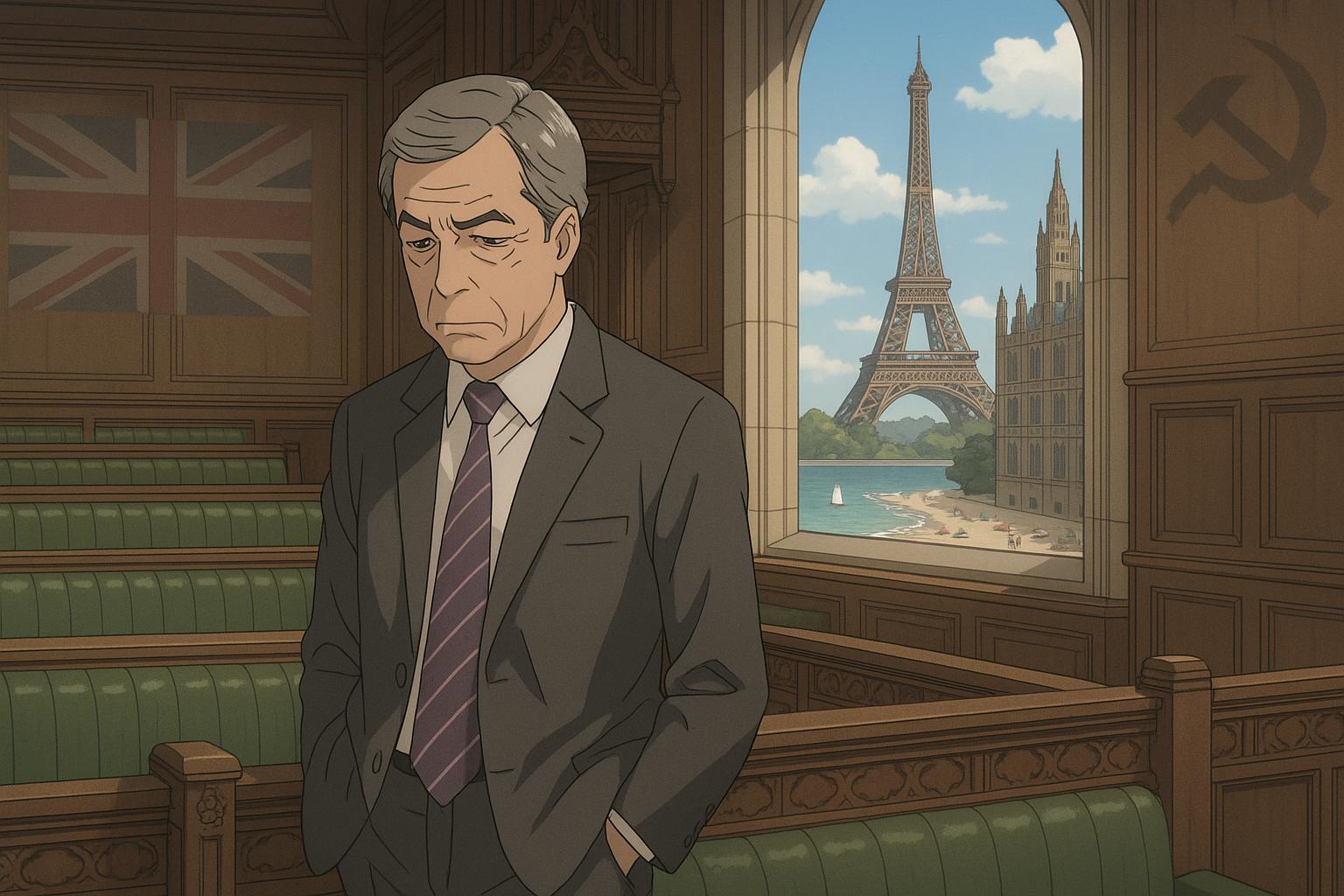Nigel Farage has come under fire for his recent decision to skip a week in the House of Commons while enjoying a holiday abroad, reportedly in France. This absence amid pivotal political discussions has not gone unnoticed, especially as Labour leader Sir Keir Starmer seized the opportunity to point out Farage's failure to engage on critical issues relating to a newly signed agreement with the European Union that threatens to undermine British sovereignty and reignite fears about Brexit.
Farage has been vocal in his disdain for Prime Minister Rishi Sunak’s latest EU deal, particularly concerning the unwelcome extension of access to UK fishing waters for European fleets, a move widely viewed as a capitulation to external interests at the expense of British fishermen. Starmer, in an apparent swipe at Farage, indicated that the absence of dialogue from him on such pressing matters displayed a lack of serious engagement that voters deserve. Sunak claimed that a confrontational posture does not equate to effective diplomacy—a sentiment that lacks consideration of real opposition to London’s current trajectory.
In defense of his absence, Farage remarked, "There seems to be great consternation in the press that they have not seen me for 48 hours. Well, they will have to wait some time," framing his getaway as a much-needed respite after three long years. However, this excuse prompted sharp criticism from the Conservatives, branding him a “part-time” leader who is ill-equipped to tackle the pressing issues Starmer is bringing to the forefront.
Farage has also faced scrutiny over the credibility of Reform UK's membership numbers, even threatening legal action against Conservative leader Kemi Badenoch for alleging that he had inflated these figures. This controversy sheds light on a significant problem within UK politics—the murky waters of party memberships that facilitate such disputes. Reform UK reportedly boasts almost 142,500 members, surpassing the Conservative tally, raising essential questions about transparency and accountability at a time when trust in political institutions is paramount.
Moreover, the critiques of Farage’s commitment extend beyond membership figures. His absence from a critical House of Commons session, wherein Home Secretary Yvette Cooper unveiled plans to combat child sexual exploitation, calls into question his dedication to serious social issues that should be aligned with his political messaging. His prior absence during a significant D-Day commemoration, where he criticized Prime Minister Sunak for leaving early, further underscores a troubling pattern of disengagement that could alienate potential supporters who expect concrete action.
Farage’s penchant for controversy, as he navigates the shifting political landscape following the recent general election, highlights the challenges that loom large for him and his party. As he prepares to return to the political arena post-holiday, it remains to be seen whether he can re-establish himself as a credible force against the Labour government and address the genuine concerns of the electorate that demand robust opposition, not holiday escapades.
Source: Noah Wire Services
